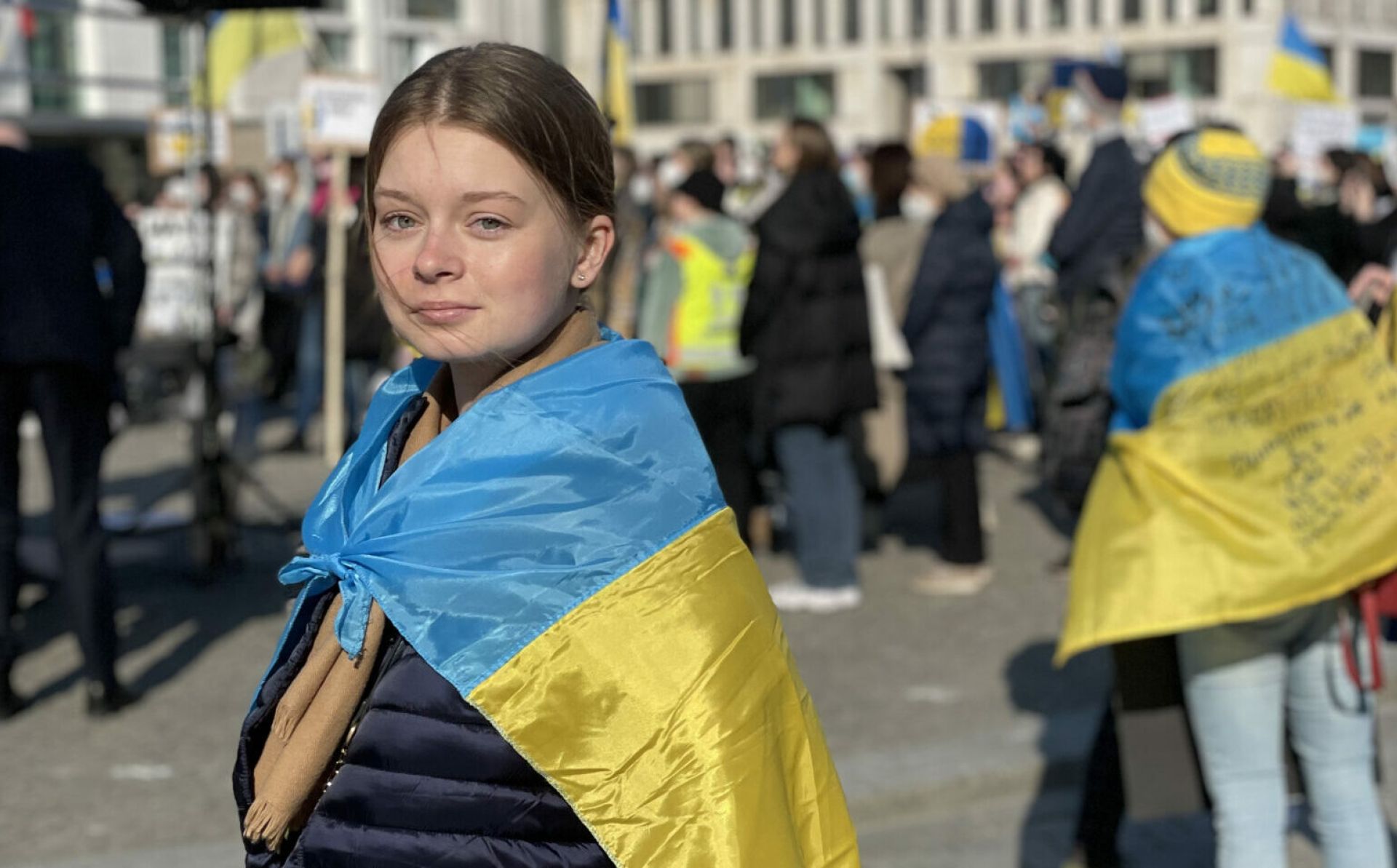
Life at war. Eliza: Has the war broken me? No. But it took a long time to recover
Eliza from Kyiv is a law master who graduated from the International Law Faculty of the Yaroslav the Wise National University of Law. Before the war, she served as an intern at the Supreme Council of Ukraine at the Committee for Ukraine’s EU Integration. She was accepted for an internship as an assistant to the Honorary Consul of France in Kharkiv. Eliza would frequently initiate public lectures and help organise charitable events. She is also a Young European Ambassador.
“The war caught me in Kyiv. At 5 am, my mother, who lived in Kharkiv, called me and said, ‘Liza, the war has begun. They are bombing us.’ I was not so much afraid for myself as for her, because the tickets to leave Kharkiv were gone at once. Anyway, my mum was afraid of going anywhere,” the woman recalled.
Eliza decided to evacuate from Kyiv to her cousin, who lived in Khmelnytsky. At first, she had to walk 12 km from home to the station, because the subway line did not work. Eliza took with her only her documents and tracksuit, because she thought she was going only for a few days.
“I didn’t take any clothes or food. I thought, they would keep out of Kyiv. I had one tray of pancakes and two tangerines. There were students next to me on the train, and I gave them tangerines, because I realised that they, like me, had eaten nothing in the morning and were both nervous and hungry. I left behind a full fridge of food and my entire closet. On my way, I thought that was only for a week or two, and the main thing was not to die from a missile or shelling,” the woman recalls.
After evacuating from Kyiv, Eliza stayed in Khmelnytsky for a few days. Her cousin’s small children were very afraid of the sirens. Eliza tells us that once her young niece became ill: her acetone level increased due to stress and nervous state, because they often sat in the basement due to air defence alert at night. The child lay for an hour unconscious with her eyes open. At that moment, Eliza managed to keep her cool, because she felt responsible for the children. In the evening, though, she finally gave vent to her emotions and cried. Another shocking incident was related to her mother. She stayed in Kharkiv for many days. The city was not occupied but under heavy attack. During the first days of the war, her mother’s house lost power, but there was still water in the taps. Later, her street had to live with no electricity, water, gas, heating, or any way of cooking. Eliza’s mother was afraid she would be stuck in Kharkiv without food and water.
“When you hear that all your mum can eat are nuts, you want to shout for help to the whole world. This was what I did. My friends would share with their friends that my mother needed at least some bread and drinking water. Even Miami bloggers shared my stories. People from different parts of the world sought volunteers for my mother. Thank you to them. Later I realised that I couldn’t carry on like this. It was impossible to go on. This was the reason for going abroad,” she says.
At first, Eliza had to fight to get onto the train, with hundreds of people trying to get through. Then she had to spend the night at the train station in Lviv, wearing only one coat, when it was freezing in winter. In addition to that, a man made passes at her and worsened the stress. Thanks to the volunteers who were there all the time, everything ended well. In the morning, a friend drove Eliza to the Polish border crossing, where another friend had already been waiting for her on the opposite side. He introduced Eliza to a woman from his work, who hosted Eliza for a night.
“I didn’t have any money, because I was ‘smart’ enough to withdraw all the cash in hryvnia back in Ukraine. But someone gave me 1,000 zlotys. It helped me to survive. I had to spend every new night in a new city with acquaintances. There was no plan or final destination,” Eliza recalls.
Then, according to Eliza, a miracle happened. Another friend wrote to her and proposed to stay with him in Berlin. This is how she ended up in Germany. Eliza has been living with his family for a month now. They helped her with everything, including documents, a bank account, vaccinations, and so on. Eliza feels like a member of their family, for which she is very grateful to her hosts.
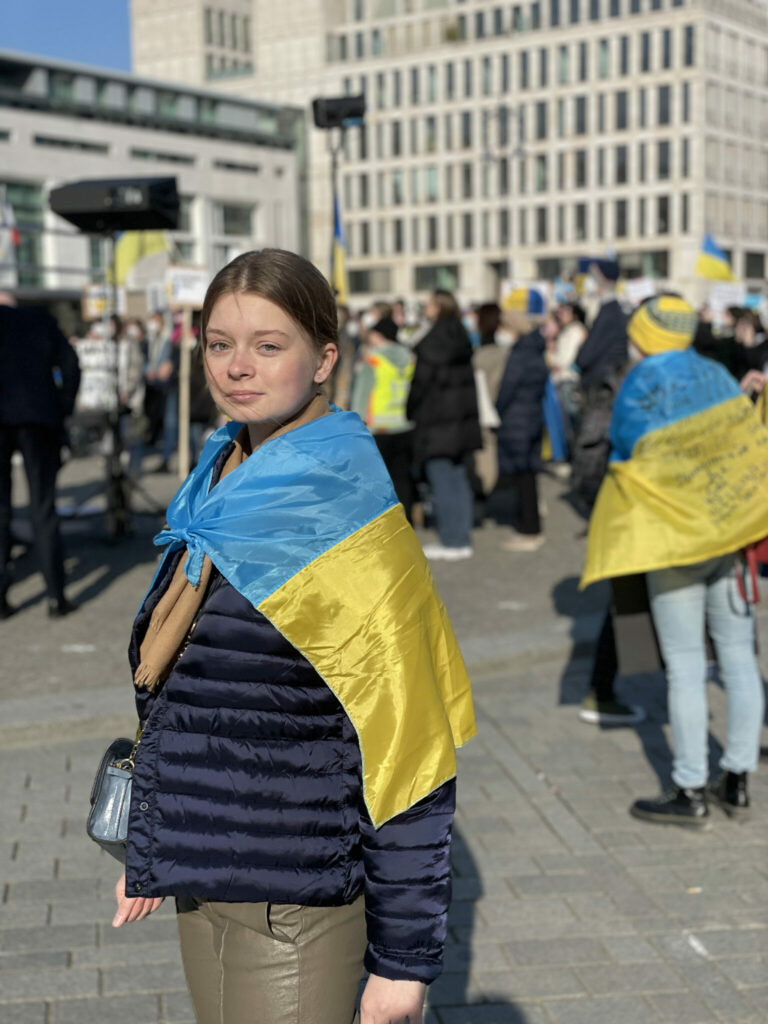
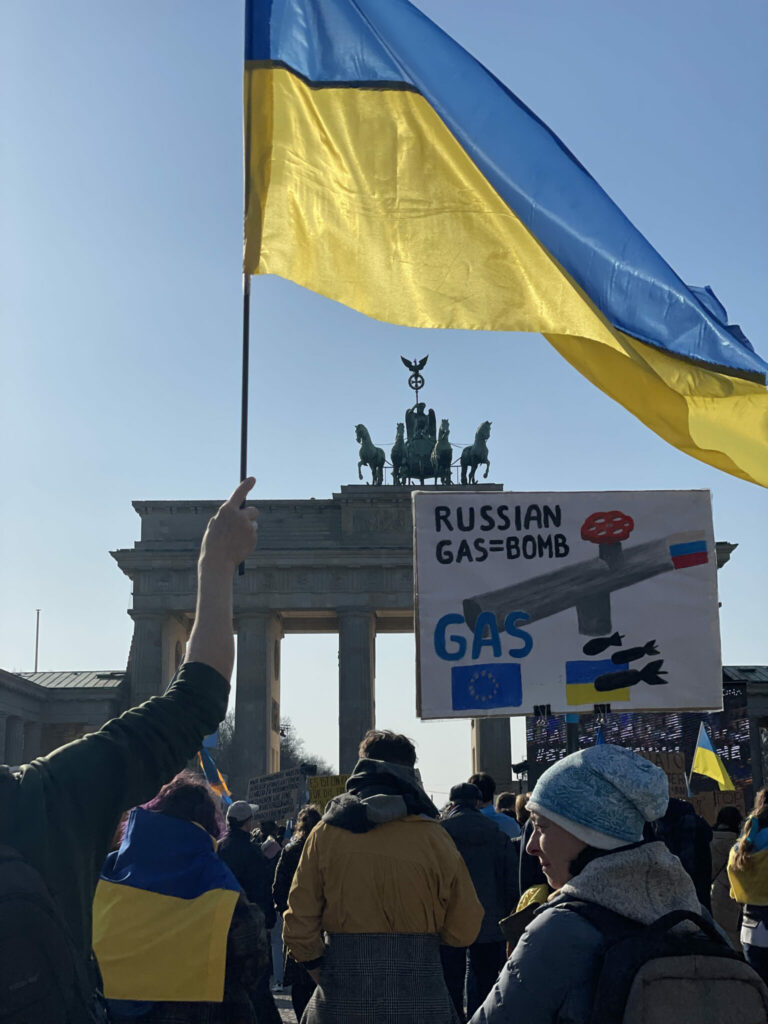
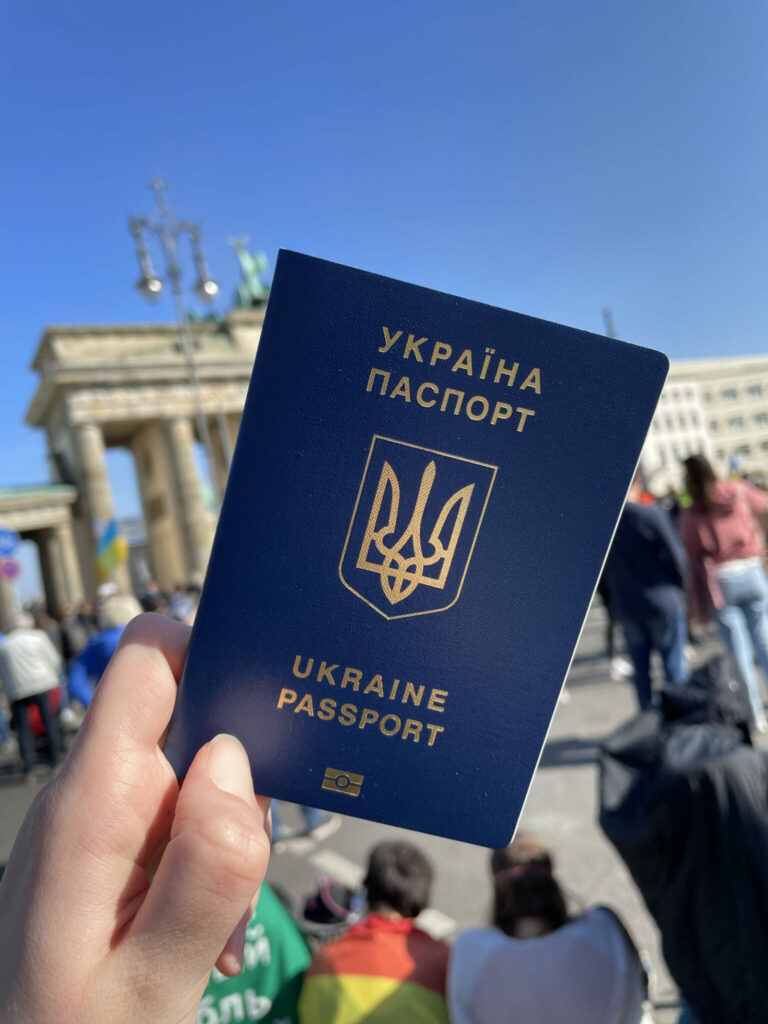
Eliza now plans to get her master’s degree. After passing all her exams in Ukraine, she still has no diploma in hand. She says that it depends on the university, where she will live and work in the future. Eliza is now back in touch with the MP for whom she worked before the war; she helps her with communications, analysis of materials, and translations. She also attends pro-Ukrainian demonstrations and works on a proposal to support victims of sexual abuse by the occupiers.
Reflecting on the time that has passed since the Russian invasion began, Eliza notes that she has begun to value her family and loved ones even more:
“When escaping from Kharkiv, my mum took only one bag. She didn’t sleep all night before that, and after so many days in the basement it is extremely hard to collect thoughts and pack thoughtfully. What my mum did was thinking about me: in her only bag, she put some summer clothes for me, my face cream, my towel, my favourite spices, and my vyshyvanka. Almost nothing for herself. I don’t know if I can learn to love like my mummy does.”
Eliza says she easily lets go of negative thoughts about other people’s misdeeds and cannot remember anything bad for a long time. That is why she cannot think of anything negative about her journey. The only thing she cannot forgive herself for is her hopeless state, a pause in her achievements, and the never-ending feeling that she could do more.
“Has the war broken me? No. But it took me a long time to recover. I believe in the Armed Forces of Ukraine, the President of Ukraine and the Ukrainian people. Particular thanks to the Young European Ambassadors group, because you mitigate my fears and loneliness”, Eliza added.
Author: Sofia Korol
MOST READ
SEE ALSO

‘The Kremlin has entered the chat’: how to protect your personal data on Telegram and avoid the bait of propaganda

No, time is not on Russia‘s side
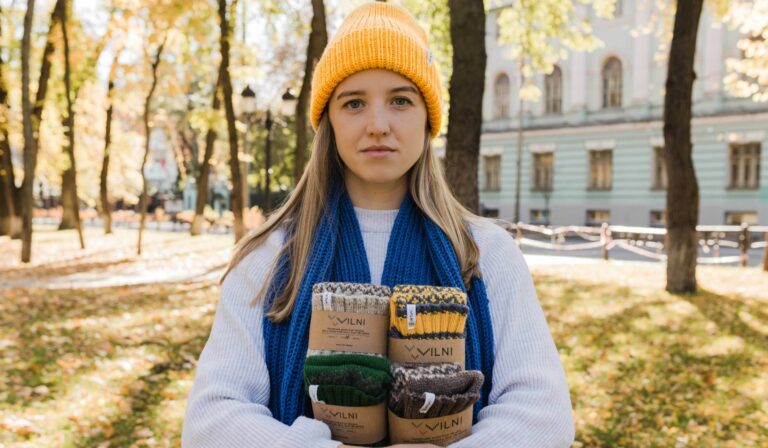
Socks for Peace: how the Vilni project is supporting internally displaced women in Ukraine
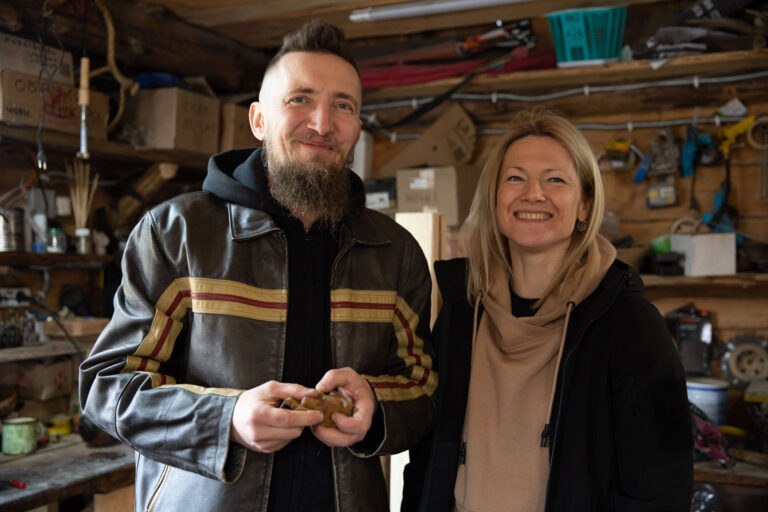
Celebrating traditional Ukrainian cultural identity in Rivne
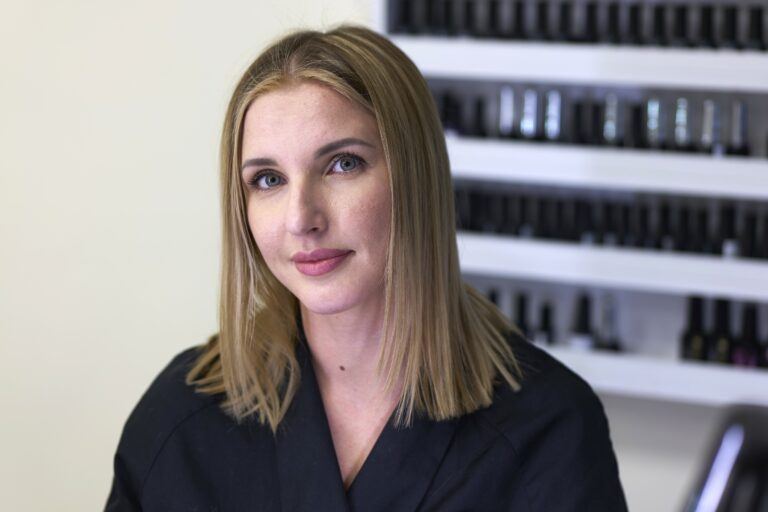
Natalia wanted her child to escape the war: how a single mother set up a successful business in Lithuania
More campaign pages:
Interested in the latest news and opportunities?
This website is managed by the EU-funded Regional Communication Programme for the Eastern Neighbourhood ('EU NEIGHBOURS east’), which complements and supports the communication of the Delegations of the European Union in the Eastern partner countries, and works under the guidance of the European Commission’s Directorate-General for Neighbourhood Policy and Enlargement Negotiations, and the European External Action Service. EU NEIGHBOURS east is implemented by a GOPA PACE-led consortium. It is part of the larger Neighbourhood Communication Programme (2020-2024) for the EU's Eastern and Southern Neighbourhood, which also includes 'EU NEIGHBOURS south’ project that runs the EU Neighbours portal.

The information on this site is subject to a Disclaimer and Protection of personal data. © European Union,







